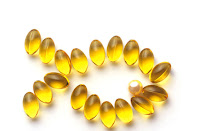 Cherries Can Reduce Gout Attacks, and Other Joint Pains
Cherries Can Reduce Gout Attacks, and Other Joint Pains
Remarkably, not all joint pain can be adjusted away with skillful hands ... not even mine. A new study out of Boston University corroborated by other studies reports how a natural remedy of tart cherry extract ... or simply a bowl of cherries, and in some cases cherries plus medication can reduce some forms of chronic joint pain, and other acute attacks of gout by up to 75 %. Eating about 30 pieces of the sweet fruit within 48 hours of a gout attack may even cut the risk of recurrence of the painful arthritic condition by 35 percent.The single most important thing you can do however, to prevent acute bouts of joint pain, is to drink plenty of water throughout the day... everyday. Generally speaking, two thirds your body weight in fluid ounces. For someone weighing 150 pounds about 99 ounces or 3 quarts of water consumed slowly all-day-long should become a daily ritual for everyone.
Drink Plenty of Water Throughout the Day
When so-called conventional medicine discovers something that natural health professionals have been saying for years, I always find it amusing.
 This November 2012 study from Boston University found among 633 patients, there was a direct relationship between eating cherries and reducing painful attacks of gout, or pseudogout a condition characterized by recurrent attacks of inflammatory arthritis, and in some cases chronic unrelenting joint pain without a history of specific injury or known onset.
This November 2012 study from Boston University found among 633 patients, there was a direct relationship between eating cherries and reducing painful attacks of gout, or pseudogout a condition characterized by recurrent attacks of inflammatory arthritis, and in some cases chronic unrelenting joint pain without a history of specific injury or known onset.Not too shocking, the more cherries someone eats the better the results are. Those who eat one serving a day were able to reduce their attacks by 35%; two servings a day reduced attacks by 40%; and 3 servings of cherries had reduced attacks by as much as 51%. Eating up to three servings of cherries, about one and a half cups, seemed to be the magic number for preventing a serious gout attack.
These researchers also found that patients who combined a daily helping of cherries with the common gout medication called allopurinol had the chance to further reduce their attacks by as much as 75%.
 Why does this occur? An excessive amount of uric acid in your diet develops into tiny little razor sharp crystals. In some, those crystals are monosodium urate (MSU, the ones found in gout), and the others are calcium pyrophosphate dehydrate (CPPD, the ones found in pseudogout). Because of super-saturation, these crystals become deposited in and around the joints triggering intense inflammation. Uric acid is a waste byproduct of metabolism and normally excreted through the kidneys in urine. When the process is impaired, uric acid accumulates in the blood stream until the concentration is sufficient enough for crystals to form and are deposited in and around the joints causing the pain, swelling and inflammation associated with gout. It usually attacks the big toes but can sometimes affect the rest of the foot, ankles or knees and less commonly, the elbows and shoulders sometimes mistaken as a rotator cuff injury.
Why does this occur? An excessive amount of uric acid in your diet develops into tiny little razor sharp crystals. In some, those crystals are monosodium urate (MSU, the ones found in gout), and the others are calcium pyrophosphate dehydrate (CPPD, the ones found in pseudogout). Because of super-saturation, these crystals become deposited in and around the joints triggering intense inflammation. Uric acid is a waste byproduct of metabolism and normally excreted through the kidneys in urine. When the process is impaired, uric acid accumulates in the blood stream until the concentration is sufficient enough for crystals to form and are deposited in and around the joints causing the pain, swelling and inflammation associated with gout. It usually attacks the big toes but can sometimes affect the rest of the foot, ankles or knees and less commonly, the elbows and shoulders sometimes mistaken as a rotator cuff injury.Alcohol consumption, or chronic dehydration along with a high protein diet increases your chances of gout
Those who are predisposed are generally sensitive to certain other kinds of food. These include organ meats like liver, sweetbreads, kidneys and brain as well as pork, red wine, and orange colored cheeses like cheddar.
Alcohol consumption, or chronic dehydration coupled with a high protein diet and other foods for instance shellfish, and small wild game are rich in the chemical purine, and can also increase the frequency of gout for those who are predisposed. You'd probably be best served to limit your consumption of mushrooms, asparagus, peanuts, lentils and peas because they are higher in purines than other foods. In doing so, I recommend a healthy diet that reduces inflammation by including fish oil or flaxseed oil rich in Omega-3 essential fatty acids, and in some persons high doses of folate.

The enigma behind cherries' gout-fighting powers isn't entirely understood. Dr. Allan Gelber who co-wrote the commentary to the study found in the journal Arthritis & Rheumatism with Dr. Daniel Solomon, said perhaps the vitamin C content of the fruit or potentially the strong anti-inflammatory effect of their high antioxidant content.
"Anthocyanins are an antioxidant pigment found in cherries and other red and purple fruits and vegetables. They seem to stabilize the free radical molecules responsible for causing inflammation and cell and tissue damage."
Fine tuned however, and in the right combinations,
magic can happen...
It's well known how many plant flavinoids and compounds called anthocyanins reduce joint inflammation. These are the same substances abundantly found in curcumin, quercetin, ellagic acid, resveratrol, Jatoba extract, and grape seed extract, but unfortunately not everyone has the capacity to benefit equally either because of absorption problems, or its simply lacking in their diets. Fine tuned however, and in the right combinations magic can happen. One such product receiving widespread attention and favor, now with 14 clinical studies found in peer-reviewed journals supporting its use and efficacy is Protandim, a Nrf2 synergiser. Protandim is a once-a-day patented formulation of five plant substances available without a prescription, and allows the body to express its own abundant antioxidant producing ability without interference.
Oddly enough, after the study above was released, the FDA sent a letter to various cherry-based product manufacturers warning them not to use the study results to make assertions about the benefits of their products.
I look forward to our Christmas celebration in a few days, and time spent with family and friends. Wishing you a happy Christmas, and a New Year filled with God's abundant favor and grace.
 Be sure to enjoy yours too, and don't forget the cherry pie!
Be sure to enjoy yours too, and don't forget the cherry pie!Bless and be blessed,








